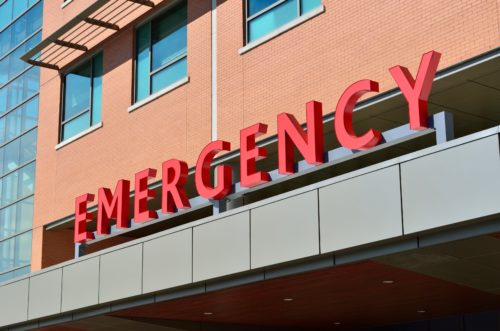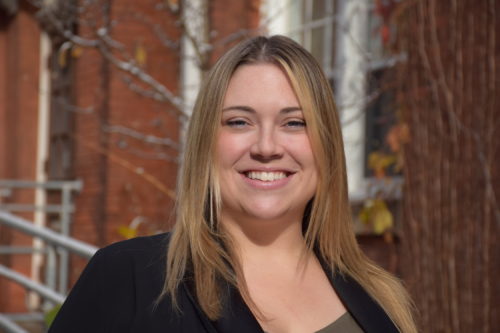
First responders coping with traumatic stress frequently turn to their partners first before seeking help from their organizations, a U of G researcher has found.
In response, Grace Ewles has developed the website SafePlacetoTurn.com that offers first responders, partners, and other family members across Canada access to an array of trauma and PTSD resources, including peer support, family supports, and information on mental health services specializing in first responders and trauma.
“The most frequently sought support that was described as being helpful by our respondents was from spouses or partners,” said Ewles, who recently completed her PhD in Industrial-Organizational psychology. “So much of the emphasis currently is on the organization being the main provider of support, but that is not where many first responders are turning to for help.”
She conducted two studies that surveyed public safety personnel, including police service members, and spouses or partners of firefighters, police officers, paramedics and rescue workers.
“We looked at the different types of events individuals had experienced at work, how stressful they thought those events were and the different types of coping strategies and supports they were seeking afterward, and how that related to their level of adjustment or functional impairment.”
Events on the job can have a deeply traumatic impact, especially scenes involving children, and homicides or suicides, she added.
“You never know what event will be triggering for one person or another,” she said. “There are some events that can push an individual to their psychological and emotional limit.”
Surveying more than 170 police service members and 150 partners of public safety personnel, and interviewing 38 spouses of police officers, firefighters, and paramedics, Ewles found that individuals are less likely to seek support from their organizations and more likely to seek help from a life partner.
She found stigma related to mental health difficulties and the culture surrounding public safety personnel contribute to the avoidance of more formal supports, she said.
The idea of being strong under all circumstances is engrained in first responders and despite positive changes occurring in many organizations surrounding mental health, there is still a fear of being reprimanded for showing weakness, she added.

“Many individuals still attempt to suppress emotional reactions and cope by themselves. But in the cases where they do seek support, more frequently they are seeking it from those more personal connections.”
She said she was surprised by the level of isolation and fear that spouses expressed. Many did not know where to turn to if difficulties related to trauma arose. This is what led to her developing the website which connects partners of first responders to each other and to resources. She hopes to start a dialogue that reduces the sense of fear and isolation that many experience.
Ewles has a personal reason behind her research and social action: Her father is a retired police officer.
“Growing up, I saw the impact the work had on him and the role my mom played in helping support him. I kind of dedicated this line of research to them. But I know that many families are struggling out there.”
Trauma has a wide range of effects on the personal functioning of individuals, she said, much of that showing up in home environments.
“You see the different ways that it impacts the family. Some individuals may isolate themselves or withdraw from family and friends, others may become more irritable or agitated. Sometimes the individual can have recurring things like nightmares and sleeping problems. It can really present itself in a number of ways. In some cases, there can be a search for the cause of physical ailments without knowing that the symptoms may be associated with post-traumatic stress.”
In her research, she also found that many first responders suffering from trauma are still functioning on the job and may not be at a point where they can be diagnosed with a mental health disorder. That is a problem.
“Research has shown that few people actually meet diagnostic criteria,” she said. “But they may be experiencing significant impairments at home and at work. There is an opportunity to provide a variety of supports to help meet the range of individual needs present, so that we limit the number of people experiencing the cumulative effects of stress and trauma over time.
One approach to this would be to extend organizational programs and resources to families. By providing spouses and family members with direct access to resources internally, organizations can take proactive measures to support the health and well-being of first responders by ensuring families have the ability to provide effective support at home when needed.